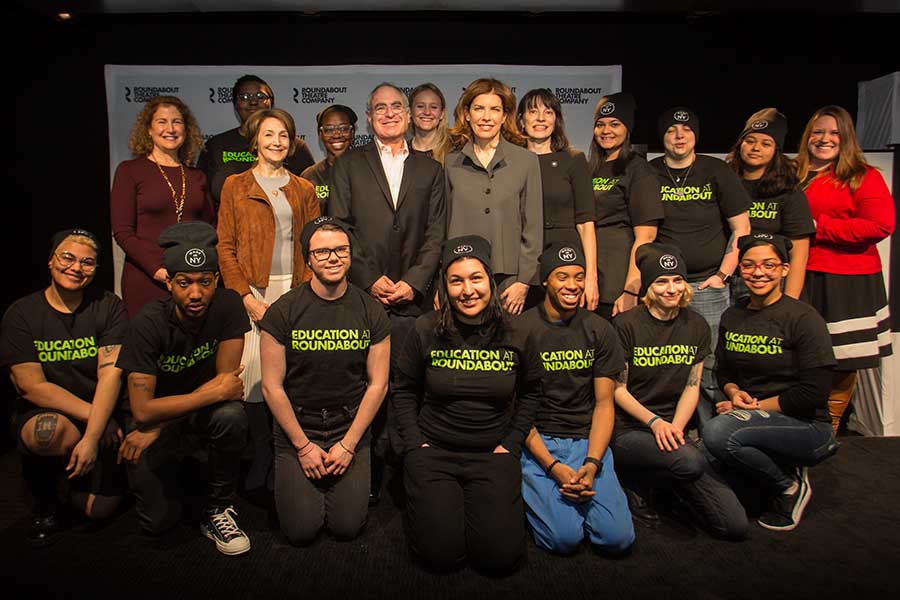NEW YORK CITY: Roundabout Theatre Company has launched the Theatrical Workforce Development Program, which is aimed at training young adults and placing them in technical theatre careers. The free, three-year program will provide students with a living wage, training, mentoring opportunities, and professional experience in order to launch their careers as technical theatre artists. The program will be focused on groups that are underrepresented in the theatre, such as people of color, women, low-income individuals, and those with disabilities.
“We’re trying to remove the barriers to the industry,” said Roundabout director of education Jennifer DiBella, citing hurdles such as college degrees and unpaid internships. In fact, the inaugural group of 14 fellows are currently in their first year of training and “most of the fellows from this class are from low-income backgrounds.”
The program is an extension of the Education at Roundabout Program, which provides arts education to 35,000 students each year. The professions that the program will focus on include stagehands, riggers, electricians, sound engineers, carpenters, hairstylists, makeup artists, and wardrobe workers. According to a study released last year from New York City Department of Cultural Affairs (DCLA), technical/production jobs are overwhelmingly white and male dominated.
“I didn’t know my route in terms of being an engineer,” said 20-year-old Ajalon Glover, who is currently in his first year in the Theatrical Workforce Development Program. His goal is to be a sound engineer. “Being partnered with Roundabout, it helped me transition into the industry and gave me a better career path.”
The three-year Theatrical Workforce Development Program will contain three parts. The first year will include 10 months of training at the Roundabout—which includes a six-week Made in New York Stagecraft Boot Camp and a two-month summer internship at a participating theatre. Throughout this year, the fellows will receive a living wage, reimbursed travel, one-on-one mentorship with members of the International Association of Theatrical Stage Employees (IATSE), and retention support services.
The second year will see the fellows placed in entry-level jobs at nonprofit theatres, while still receiving mentorship from IATSE. In the third year, the fellows will pursue contract work with the Roundabout’s network of theatres, as well as performance, sports, cruise line, and conference venues. Throughout this process, the fellows will continue to receive support from Roundabout.
“I think it’s a magnificent idea to give students who have graduated high school…a way to learn a skill or craft where they can make a living, where college degrees aren’t necessary but training is necessary,” said Roundabout artistic director and CEO Todd Haimes.
Roundabout is currently taking applications for the second group of fellows, and will accept up to 20 students. The opportunity is open to young adults age 18 to 24, from New York City who have completed high school, or equivalent programs. The goal for Roundabout is to retain a majority of the fellows in the industry, and to make sure they are working full-time and making a living wage. For DiBella, she doesn’t foresee retention as an issue, saying the first cohorts are “getting job offers already!”
The new initiative is a partnership with IATSE and youth development nonprofit, The Door. The program is largely funded by the New York City Mayor’s Office of Media and Entertainment (MOME) and the Department of Small Business Services, which provided $500,000. The training program is part of a citywide initiative by the Mayor’s office to diversify the entertainment industry in NYC, such as with the newly created MOME Women’s Fund for Film and Theatre.
“Before this program I didn’t really have a lot of confidence I could make a career out of theatre,” said 19-year-old Isaac Grivett, currently in his first year. “I feel like I have the skills now and can be successful in my career.”


